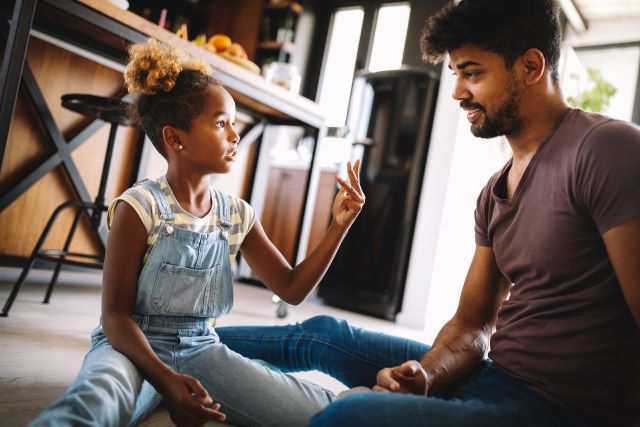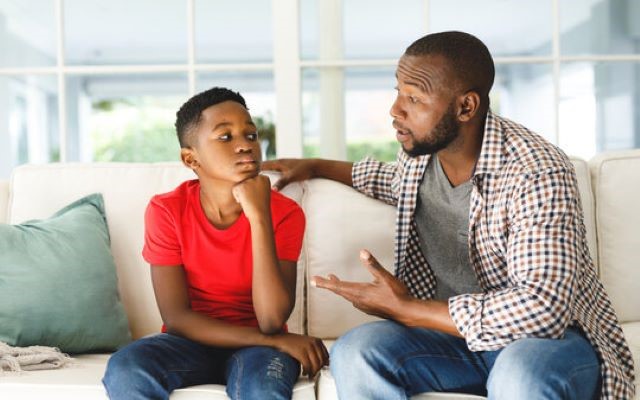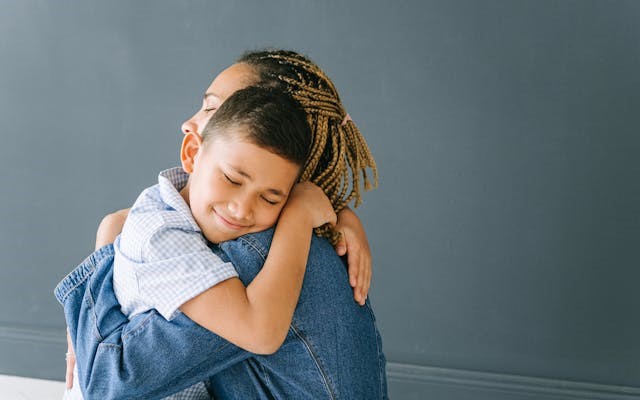In recent years, the conversation around school shootings has become an unsettling reality for many families. As these tragic events become more frequent and widely reported, parents face the challenging task of discussing them with their children. Navigating this conversation requires a delicate balance between providing reassurance without fostering fear, addressing the gravity of the issue while maintaining hope, and ensuring that children feel safe and understood. Here are a few tips on how to talk to your children about school shootings in in a thoughtful and age-appropriate manner.
Per a recent article from Savethechildren.org, data shows that the United States has surpassed 200 mass shootings in 2024; and we are just entering the Fall school year. The recent deadly incident at Apalachee High School, that left four people dead and nine injured, in Winder, Georgia, is the 218th time that a gun was fired or brandished at a school.
Talking to students, no matter the age, is an unfortunate must for parents to do. According to the experts, here are some tips to help guide the conversation according to your child’s age.

Preschool-kindergarten: One-sentence story
Per parenting expert, Dr. Deborah Gilboa, in an updated interview with Today.com, parents still need to talk to children within this age group; however, they need to keep things short and sweet, while at the same time “reinforcing your families beliefs” about people hurting people.
“You have to figure out before you talk to them what story you want them to tell themselves,” Dr. Gilboa said. “You are going to give a one-sentence story to anyone under 6.”
Elementary school children: Shield them
For this age group, parents should set out to plan what is the “takeaway message” for their children. Children in this age group are full of question, so a little planning before you talk to them will help you both out when deciding just how much you are going to share.
Additionally, Gilboa recommends that parents of this age group shield their children from news images that might disturb and scare/frighten them even more about the shooting. If they have already seen images on the news, try and replace them with positive things to “counteract the negative.”
“Let’s see if we can replace those memories and balance it out by showing the positives and the amazing people who rushed to help.”

Tweens: Listen to their feelings
Start of by asking your tween if they are aware of what has happened and then ask them how they feel about it. Listen up and tune-in to what they have to say. Allow them to guide the conversation. This will give parents the opportunity to respond accordingly.
“(This becomes) a great conversation of their values and your values that do not focus on the particular gore (but) more on the person you are raising.”
Teens: Look for solutions
“Teenagers are looking for hypocrisy and solutions and this generation believes in collaboration and social justice. And they are going to ask ‘What are you doing,’” she said. “You can answer and then ask ‘What are you doing? What would you like to do? What can we do together?’”
For teenagers, the talk becomes more about helping them develop resilience and empathy. With teenagers, listening to what they have to say and will help you gain insight into who they are becoming.

Addressing school shootings requires a multifaceted approach, integrating effective legislation, mental health support, and community engagement to ensure the safety and well-being of students across the nation. By sitting down as a parent and talking to your child, you are not only reassuring them, but you will also be able to pick-up on any trauma that needs addressing. Make sure to share your feelings with your children. Remember, in situations like this, they are looking to you to lead.






